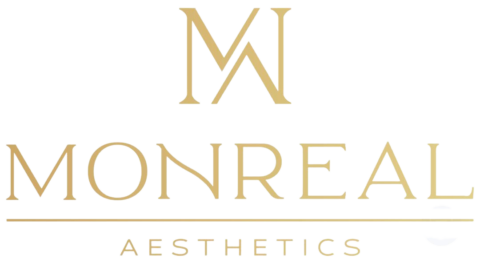Management of Inflammation with Hyaluronic Acid in the Lips
After receiving hyaluronic acid injections in the lips, it’s common to experience swelling. This is due to the body’s natural reaction to the treatment.
Reduction of Swelling
- Apply localized cold: A cold cloth can help reduce inflammation effectively.
- Avoid heat: Avoid hot baths or heat sources to avoid worsening inflammation.
- Rest: Avoid excessive physical exertion during the first day after treatment.
- Elevate your head: Use extra pillows while sleeping to reduce fluid buildup on your lips.
- Eat soft, cold foods: Cold foods can relieve swelling.
Hyaluronic acid for lips is a very attractive option for instantly brightening and shaping your lips. I vividly remember the first time Dr. Monsalve performed this treatment on me: I didn’t know much about the preparations or the possible side effects.
Although it’s not serious, I didn’t know that my lips could swell when applying hyaluronic acid.
Hello! My name is Sandra, and I’m the nurse manager at Monreal Aesthetics. If you’re new to the topic, like I wasn’t the first time I applied hyaluronic acid to my lips, here I’ll show you why this happens and what precautions you should take if it happens.
Read on to learn more.
Why do lips swell when applying hyaluronic acid?
Lip swelling after hyaluronic acid application is common and expected, and can be disconcerting for those undergoing the treatment for the first time. This swelling is primarily due to our body’s natural response to the procedure.
When injecting hyaluronic acid into the lips, the area may become superficially swollen due to the needle and the natural reaction of the tissues.
Hyaluronic acid can attract and retain water, temporarily increasing lip volume and contributing to puffiness.
Don’t worry, this effect is usually temporary and fades within a few days, leaving lips more defined and with the desired volume. We’ll discuss this further below.
How Long Do Lips Usually Stay Swollen After Applying Hyaluronic Acid?
As you’ve seen, swelling after applying hyaluronic acid is common during the recovery process and can vary in duration from person to person.
Swelling is usually expected to persist for a few days, peaking around the second day after treatment.
It’s important to keep in mind that each person’s experience may be different. In my case, I saw a significant improvement in swelling after the first three days.
As time went on, the swelling gradually subsided, allowing me to better appreciate the results of the treatment and feel more comfortable with the appearance of my lips.
How do I reduce lip swelling from hyaluronic acid?
I’m going to share with you some of the tips that were very useful to me, and that my current doctor at Monreal Aesthetics recommended to me to help reduce the initial swelling of my lips:
- Apply localized cold: Using a damp cloth or cold compress on your lip area can help effectively reduce swelling. The moisture from the cloth will help soothe irritation and reduce inflammation, providing a comforting and refreshing sensation.
- Avoid heat exposure: It is important to avoid heat exposure, such as taking hot baths or being near heat sources, as this can increase lip swelling.
- Avoid physical exertion: During the first day after treatment, it’s advisable to avoid excessive physical exertion, as this could contribute to increased swelling. It’s important to allow your body time to recover properly.
- Elevate your head while sleeping: Using extra pillows to elevate your head while sleeping can help reduce fluid buildup in your lips and decrease swelling.
- Eat soft, cold foods: Opt for soft, cold foods; this can help ease the bloating sensation and provide additional relief.
What Care Should I Follow After Applying Hyaluronic Acid?

Don’t smoke
It is recommended to avoid smoking after treatment, as tobacco can negatively affect blood circulation and hinder recovery.
Smoking, as has been repeatedly demonstrated in numerous scientific studies, has a profoundly negative impact on blood circulation .
Wound healing is another critical aspect that can be compromised by tobacco use. Nicotine restricts blood flow to tissues, reducing the amount of oxygen and nutrients reaching injured areas.
This will cause your body to heal more slowly and less effectively, increasing the risk of long-term complications, such as infections or prominent scarring.
Don’t wear makeup
During the initial 24-hour period after undergoing treatment, you will be advised to avoid applying any type of makeup to the treated area.
This precaution is based on a series of crucial reasons that directly impact the healing process and the integrity of the skin.
If you apply makeup to your lip area, it can clog your pores, making it difficult for your skin to breathe properly.
This obstruction can create an environment conducive to the accumulation of bacteria or other irritants, thus increasing the risk of irritation or even infection in the treated area.
Not only that, the chemical composition of some makeup products could be harmful to sensitive or newly treated skin, causing adverse reactions that could compromise the effectiveness of the treatment and prolong the recovery time required.
Refrain from applying makeup during this initial period as a preventative measure!
Do not consume alcohol
In addition to recommending that you do not drink alcohol immediately after treatment, it is also recommended that you do not drink alcohol for at least 24 hours before the procedure.
Alcohol acts as a vasodilator, which means it can dilate blood vessels and increase the risk of bruising during treatment.
Hydrate yourself properly
Stay well hydrated before and after the procedure to help your body recover and reduce swelling. Don’t forget that drinking enough water can help eliminate toxins and keep your skin in optimal condition.
Avoid sun exposure
One last recommendation my specialist gave me is to protect the treated skin from direct sunlight for the first few days after the procedure. Sun exposure can increase your skin’s sensitivity, as well as the risk of irritation or hyperpigmentation.
It is important to use sunscreen and wear hats or clothing that protects your lips from the sun.
Choose a good specialist to apply hyaluronic acid to your lips with Monreal Aesthetics in Bogotá.
Before deciding on this treatment, it’s essential to know all the details we’ve just mentioned.
I think choosing a good hyaluronic acid specialist is perhaps the most important piece of advice I can offer you if you’re worried about puffiness.
At Monreal Aesthetics, you’ll be welcomed by highly trained and committed experts, ready to provide comprehensive support, offer expert advice, and ensure that every step of your experience is both safe and rewarding.
You have nothing to worry about; at Monreal Aesthetics, we are fully dedicated to understanding and adapting to your individual expectations and specific needs, ensuring you achieve your desired results with complete confidence and comfort.
Don’t forget to learn more about this treatment and schedule your appointment with Monreal Aesthetics !
NOTE: This is not medical advice; it is an informational article. Please consult your doctor before making any decisions.


